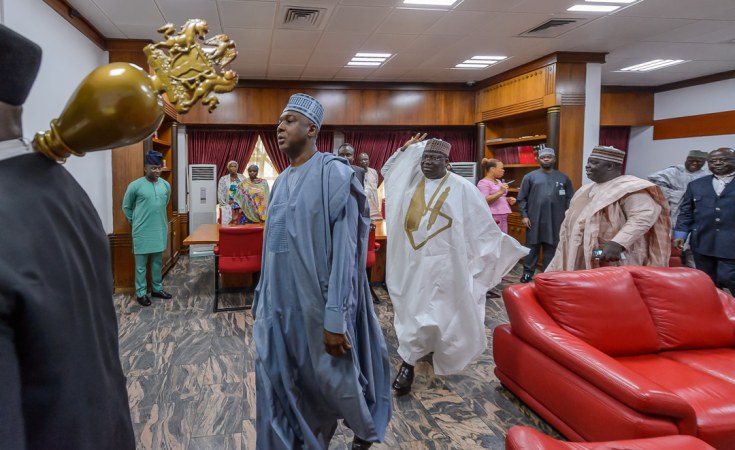Electronic Transactions Bill
Excerpted from sections of the 8th Senate 3-Year Report: Reviving The Economy, Creating Opportunities For Nigerians
Visit the 8th Nigeria Senate Chatbot to learn more.
The Electronic Transaction Bill 2015 is the first legal framework ever in our country that provides the legal foundation for electronic signatures and guarantees predictability in contracts made electronically.
BACKGROUND:
60 percent of micro and small businesses advertise and sell their wares online whether through their own sites or using social media. This has also opened up a floodgate of fraudulent activity online, commercial disputes arising from sale and delivery; and other undesirable outcomes.
Large businesses have also taken advantage of the ease offered by technology to conduct and transact their official businesses online. Contracts and agreements are being concluded without parties being physically present. But conversely, extant laws provide inadequate protection for e-commerce businesses and consumers.
The Electronic Transactions Bill seeks to provide a legal and regulatory framework for conducting transactions using electronic or related media, the protection of the rights of consumers/ parties and their personal data as well as the facilitation of electronic commerce in Nigeria.
Electronic Transactions Bill
The Electronic Transactions Bill (now law as it has been signed into law as an Act of the National Assembly) will offer full protections to contracts entered into via emails, and transactions conducted with online shops, electronic commerce and services platforms, which are currently not provided for in our laws. Another obvious benefit of this bill is that it will reduce the cost of doing business by eliminating transportation and other logistics cost. By passing this bill, the Senate gave legitimacy and local application to the United Nations Convention on the Use of Electronic Communications in International Contracts, which was adopted by the General Assembly of the United Nations on 23rd November 2005 (the UN Convention).
This new legal framework emboldens innovative creativity and open up new areas of investment opportunity for our young population and start-ups that have suffered a lack of support from creditors and investors due to the absence of this law. The implication is that the country now has the opportunity to see the emergence of a new generation online, electronic application giants.
The Bill gives validity to:
- Online contracts
- Electronic signature and records
- Admissibility of electronic evidence
- Security of Parties to an online transaction
Also Read:
Nigeria: 8th Senate Launches Chatbot Service to Showcase Legacy
Reviving the Nigerian Economy, Creating Opportunities - Abubakar Bukola Saraki, 8th Senate President
LINKS:


